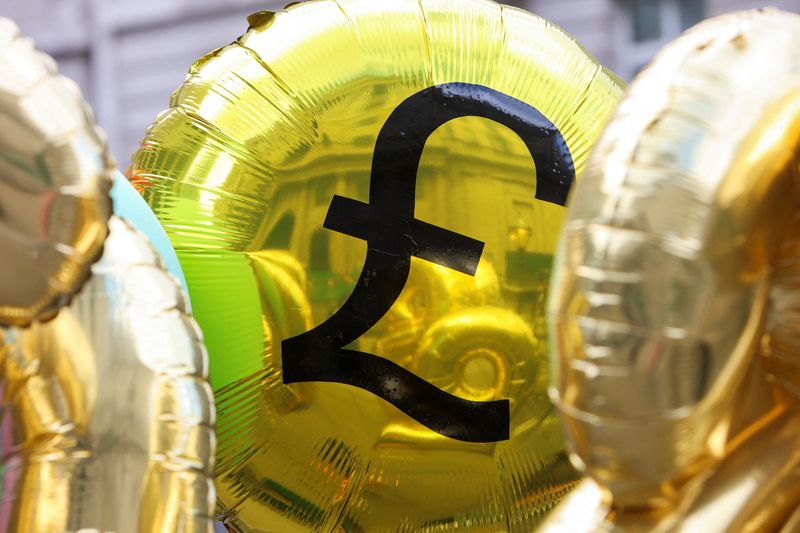By Harry Robertson
LONDON (Reuters) - The pound held steady on Wednesday, nursing the previous day's steep losses as investors waited for U.S. economic data that could shift markets.
Sterling was last flat against the dollar at $1.2624, after falling 0.87% the previous day in its biggest one-day drop since mid-October.
It was slightly higher against the euro, with the single currency down 0.15% at 86.57 pence.
Investors returned from the holiday period with doubts in their minds about the euphoria of November and December, when falling global inflation and softer words from central banks fuelled hopes that interest rates will drop sharply this year.
The dollar jumped on Tuesday to around a two-week high and the pound and euro slumped, in a reversal of the trend seen over the last two months.
Data on job openings and the manufacturing sector in the U.S., as well as the minutes from the Federal Reserve's December meeting, could bring a sleepy session to life later in the day.
Alvin Tan, head of Asia FX strategy at RBC Capital Markets, said he thought the U.S. dollar could continue to regain ground in the coming weeks.
"In general we remain relatively more positive on the U.S. dollar," he said. "In terms of cable (the dollar-pound exchange rate), it can get back down towards $1.24 in the next few months."
The Bank of England's (BoE) tougher talk on inflation than the Fed has supported sterling over the last two months, helping it gain 4.7% across November and December. Expectations of higher interest rates relative to peers tend to boost a country's currency by making its bonds look more attractive.
Yet ING strategist Francesco Pesole said in a note on Wednesday that he expected "a capitulation of the Bank of England's higher-for-longer narrative to hit the pound this year".

Inflation in the UK fell more than expected in November to 3.9%, from 4.6% in October. Traders now expect around 140 basis points of rate cuts in 2024, according to money market pricing, not far off the roughly 150 expected from the Fed and European Central Bank.
British business leaders have turned more pessimistic about the outlook for the economy, survey data showed on Wednesday, and are pushing the BoE to start cutting rates early this year.